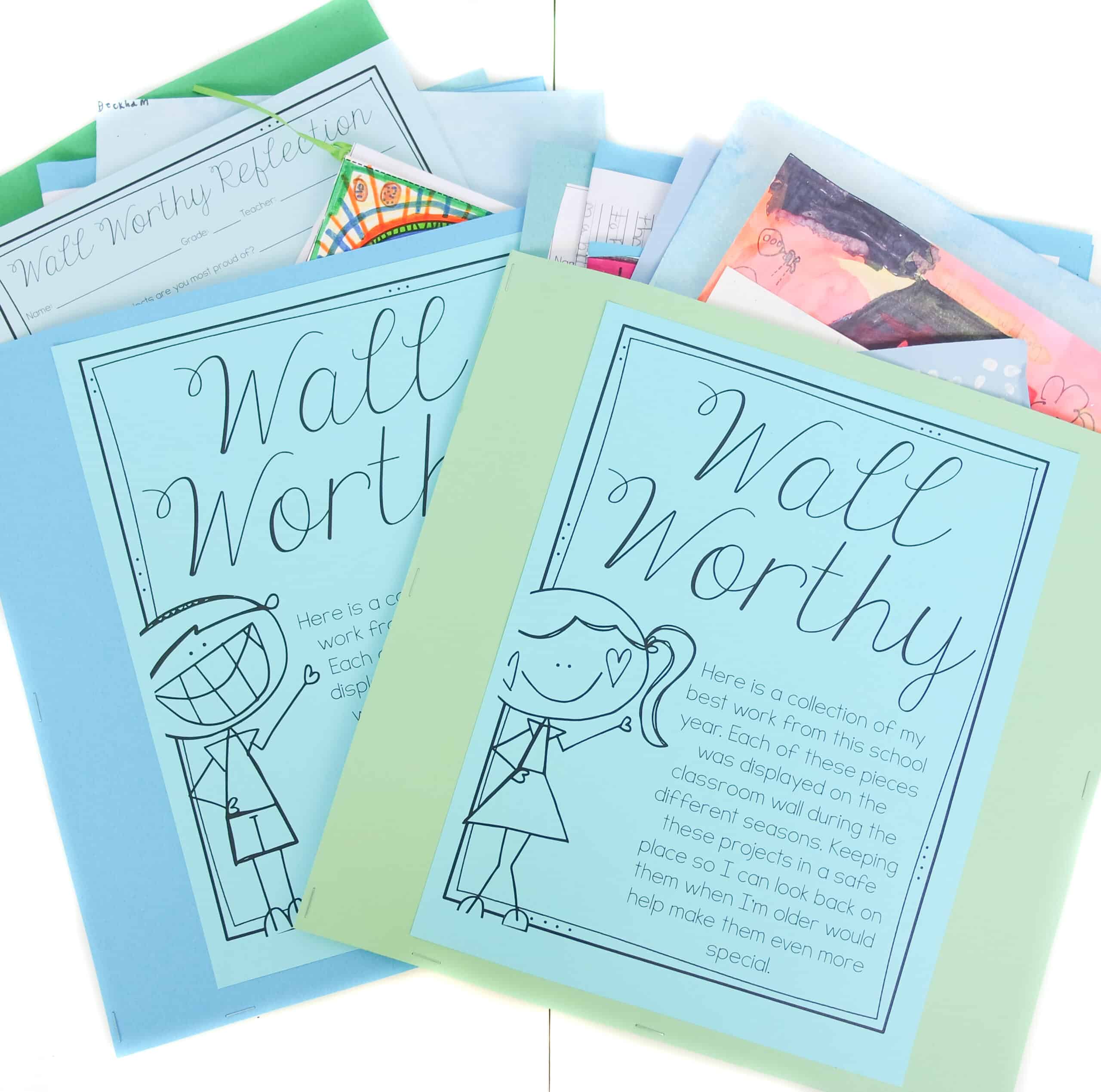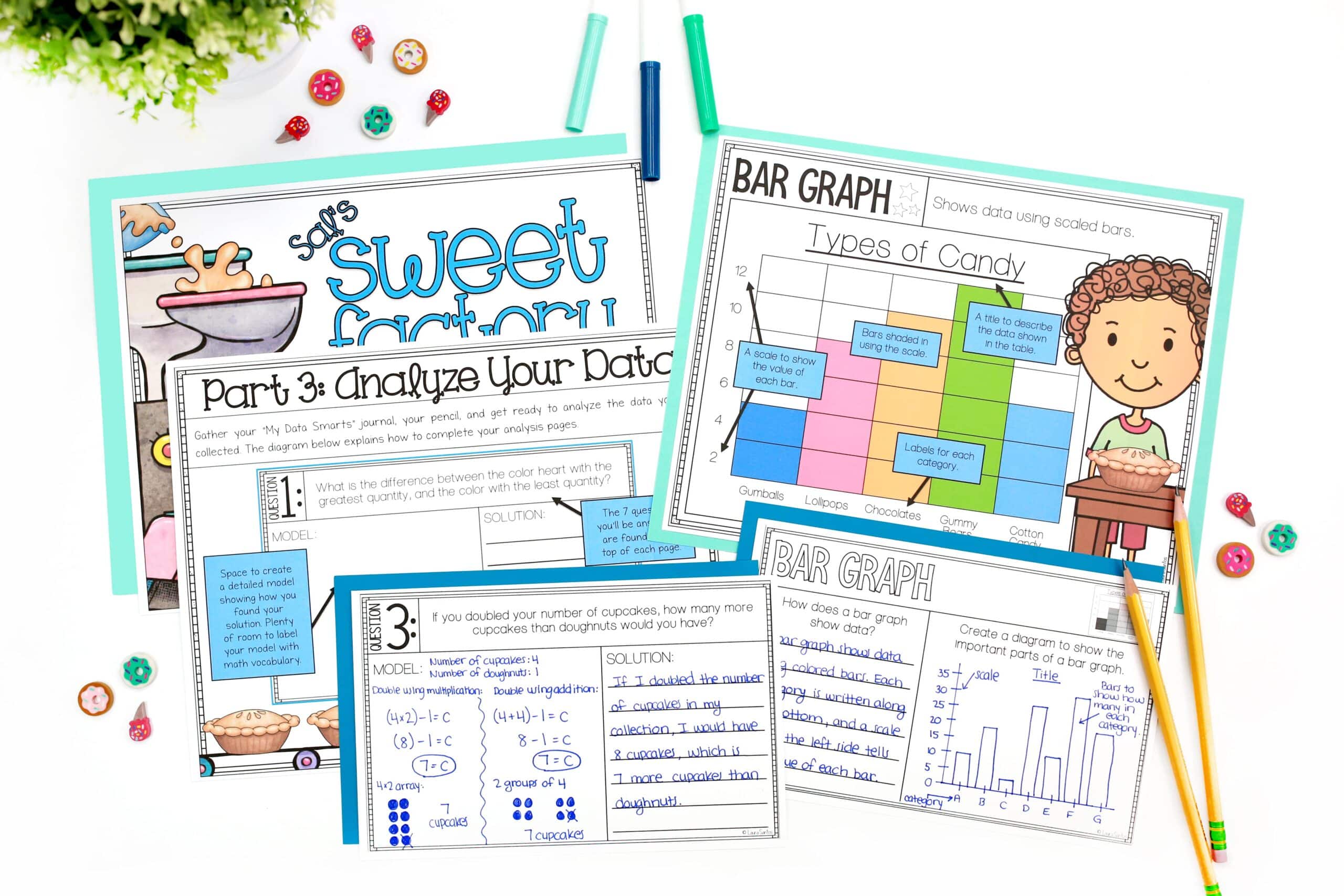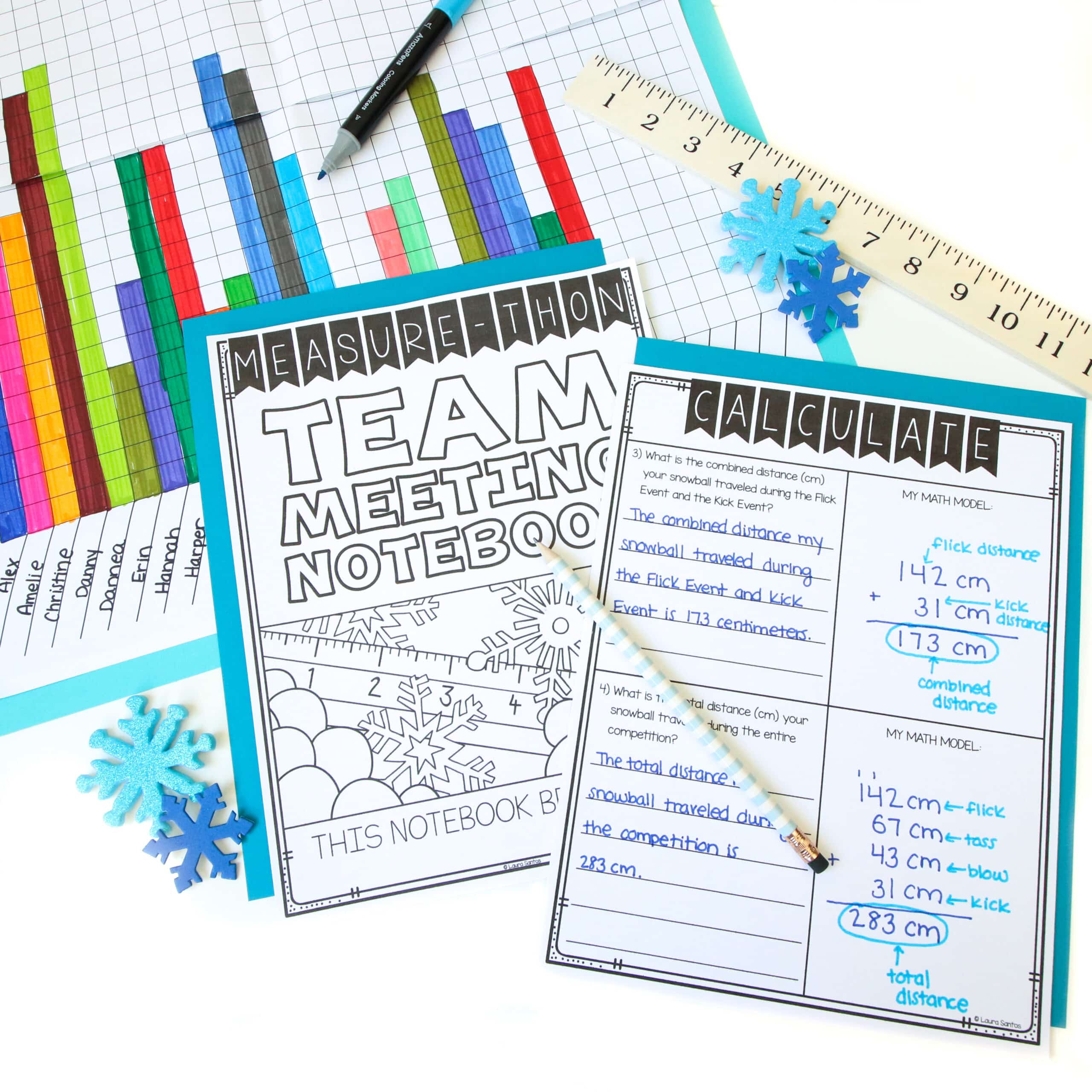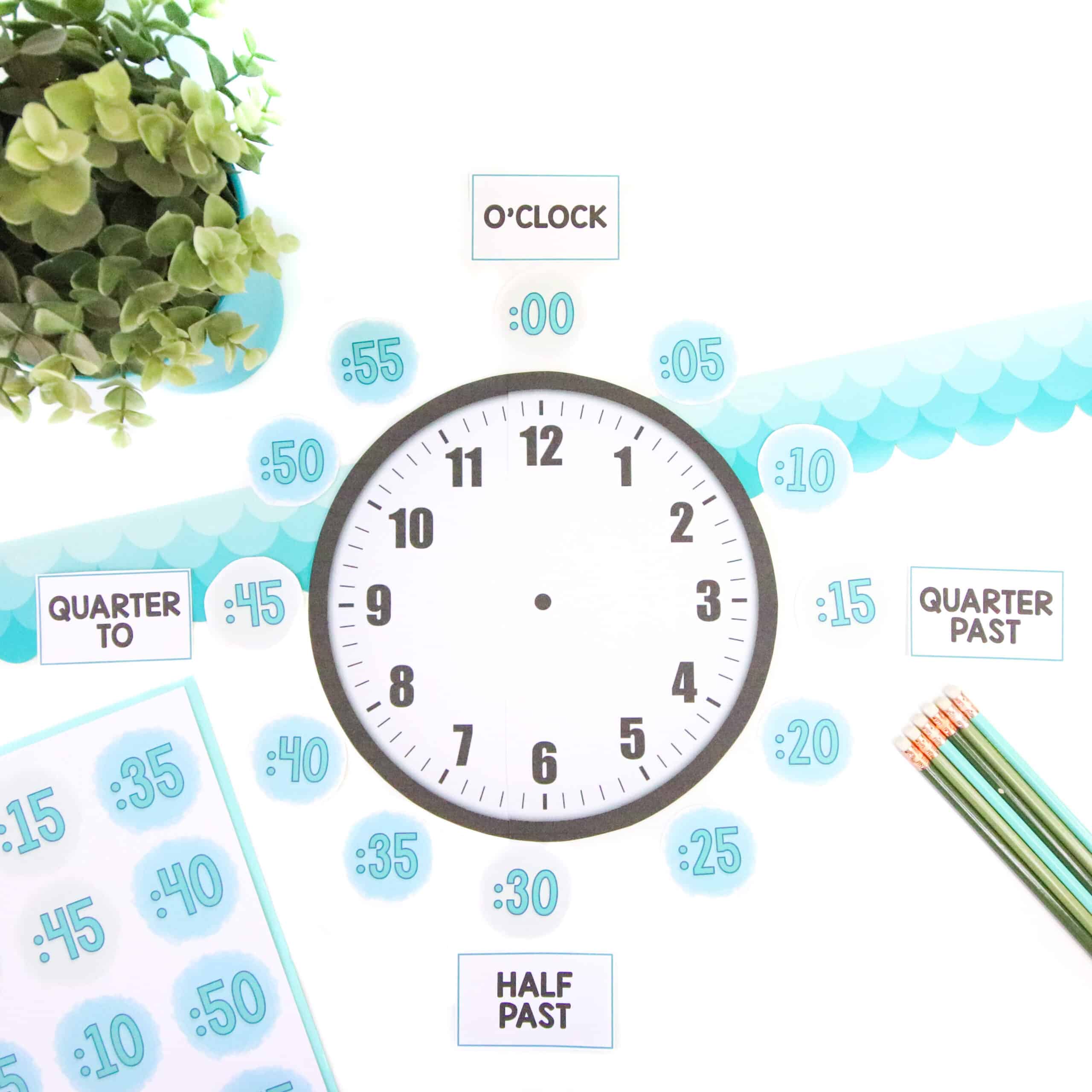We are heading into week 3 of our Math Workshop Q&A Series. This week I’ve gathered the most commonly-asked questions I receive about the At Your Seat Rotation and the Technology Rotation of Math Workshop.
Here’s a refresher on the questions I’ve been focusing on each week during this blog post series:
- Mini Lessons (Week 1)
- Meet With the Teacher Rotation (Week 2)
- At Your Seat & Technology Rotations (Week 3)
- Hands-On Games Rotation (Week 4)
If you’re just joining us and want to catch up on the previous posts or if you prefer to see all the questions in one place, I’ll send you a PDF with the full collection of questions from this series. Simply click here to let me know you’re interested. Let’s jump into your questions about the At Your Seat & Technology Rotations.
Part 3: At Your Seat Rotation Questions
Q: What do your students work on during the At Your Seat rotation?
First, they complete a worksheet from our math curriculum. This sheet has a few (usually 5-10) problems that directly correspond with the mini lesson for that day. They check their work against an answer key. On the backside of the worksheet are additional problems that also correspond to the lesson, which are completed for homework. The sheet is turned in the following morning after both sides are complete.
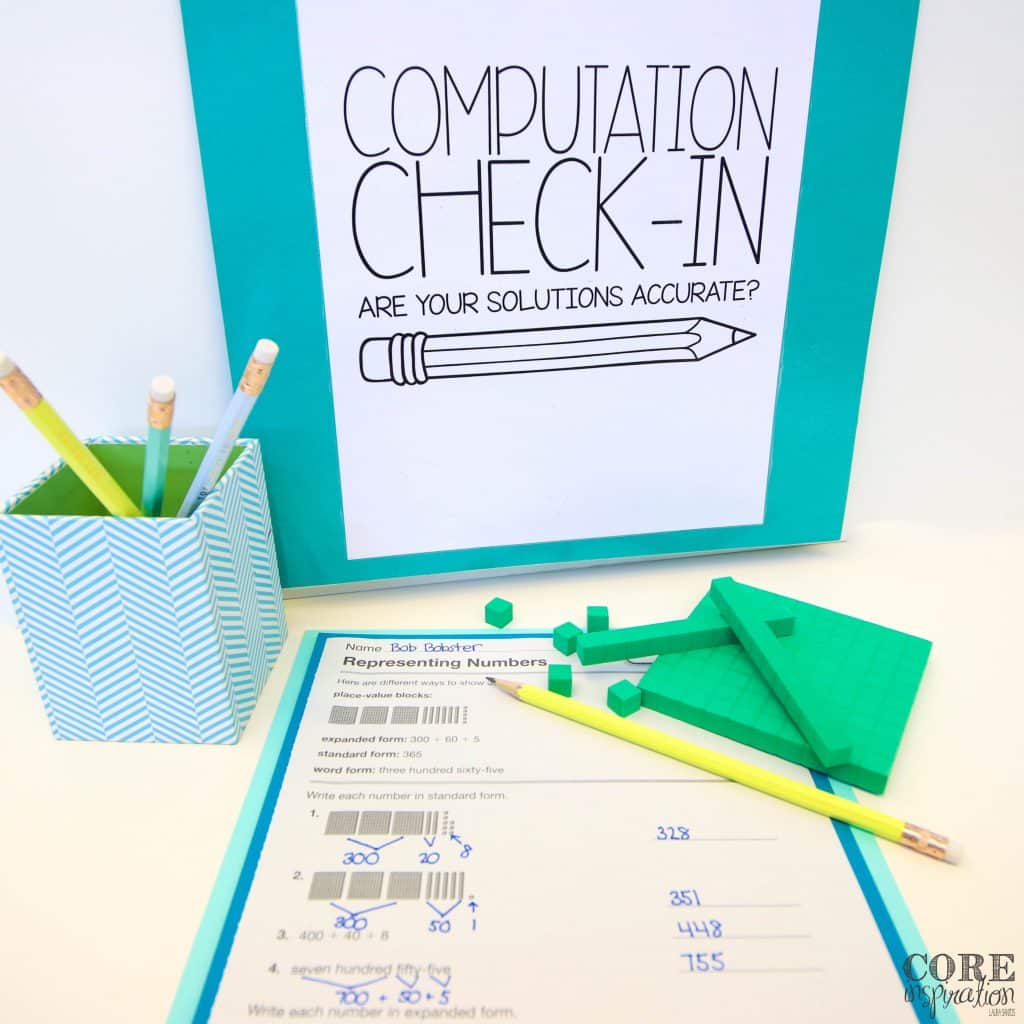
Once their reteach page is complete, they begin working on problem solving task cards. These unique task cards include a variety of word problems that require students to utilize problem solving skills, critical thinking, precise modeling, and get routine practice with explaining their reasoning. There are two types of task cards available each day:
- Making Meaning Tasks require students to apply grade-level math concepts to solve complex word problems. These rigorous tasks connect the math skills students are learning to real world situations.
- Challenge Tasks are designed to provide enrichment opportunities to students who have mastered the math concepts introduced. Each Challenge Task requires critical thinking and the ability to apply known skills to solve more advanced and complex situations.
On average, students spend about ten minutes working on task cards each day before it is time to move on to the second rotation of Math Workshop.
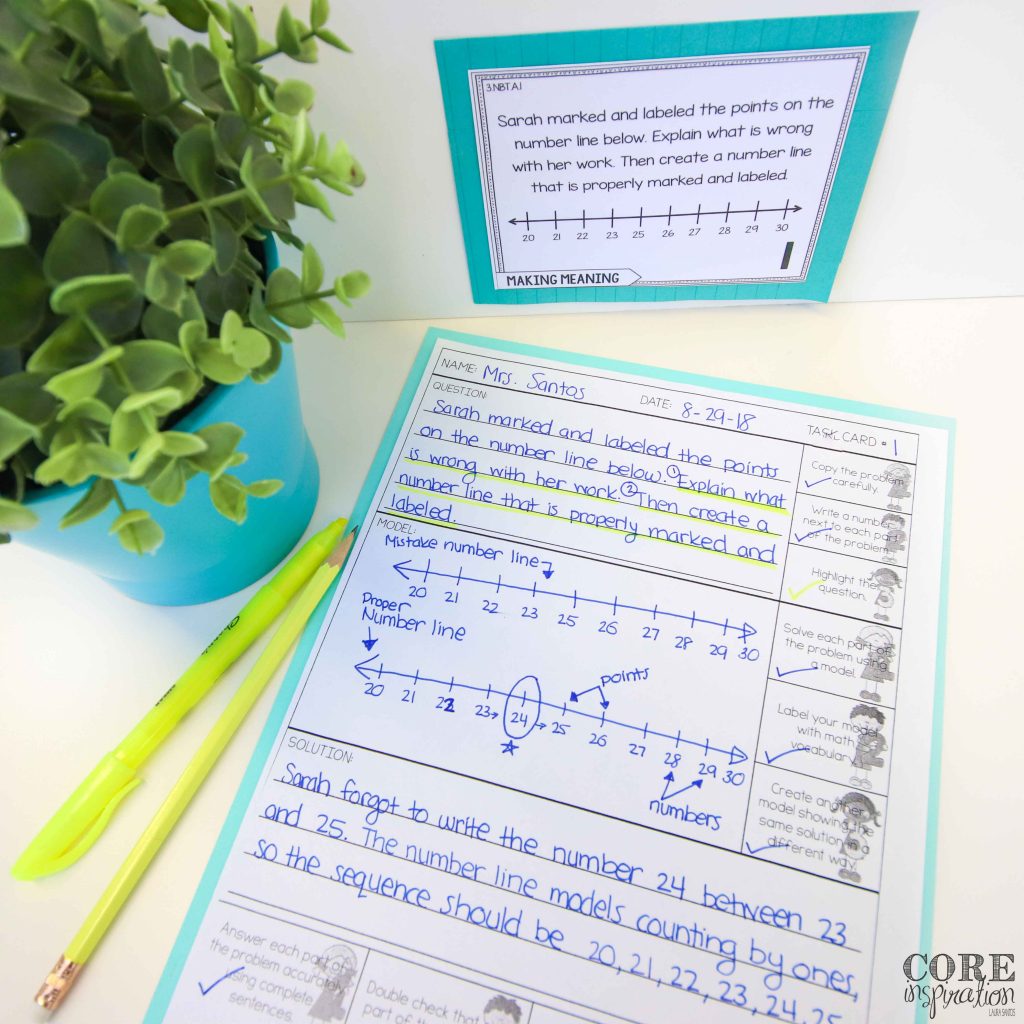
Q: Do all students do the At Your Seat rotation every day?
Yes, every student does the At Your Seat rotation every day. Since I only have two rounds of workshop and three groups, this results in only one group of students working at their seat during one round and two groups at their seats during another round. You can read more about how I form groups and create math rotation schedules here.
Q: Are the word problem task cards differentiated?
Yes, they are. There are challenge tasks in each set. These tasks provide enrichment opportunities to students who have mastered the math concepts introduced. Each Challenge Task requires critical thinking and the ability to apply known skills to solve more advanced and complex situations.
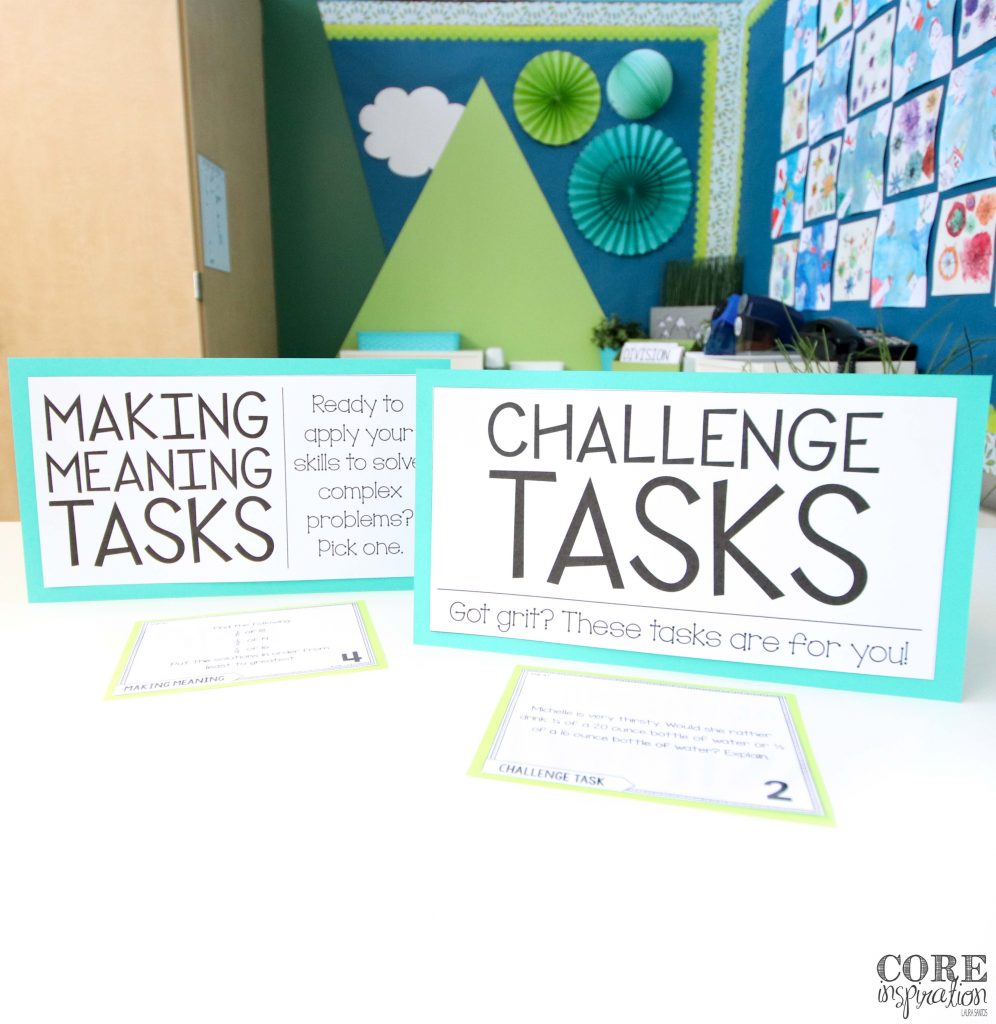
Q: When/how do you use the Transfer Task Cards?
I use the questions from the Transfer Task cards for the end-of-unit assessment. I don’t typically use all of them because that would be a long assessment. Any that aren’t used on the end-of-unit assessment are used to help me create follow-ups for students who need to circle back and be reassessed later in the year on standards they didn’t demonstrate mastery for the first go-around.
Q: Do students often need your help with task cards?
For the most part, students independently solve their word problem task cards or collaborate with their Math Triad to solve. I also use these tasks often during small group work by pulling a task that targets a skill that several students need support with.
If you want to read the full routine we use for completing math problem solving task cards, you can find it here.
The quality and accuracy of their word problem work grow dramatically with this routine because it’s consistent, includes self-reflection, includes detailed teacher feedback, and incorporates student exemplars that drive growth.
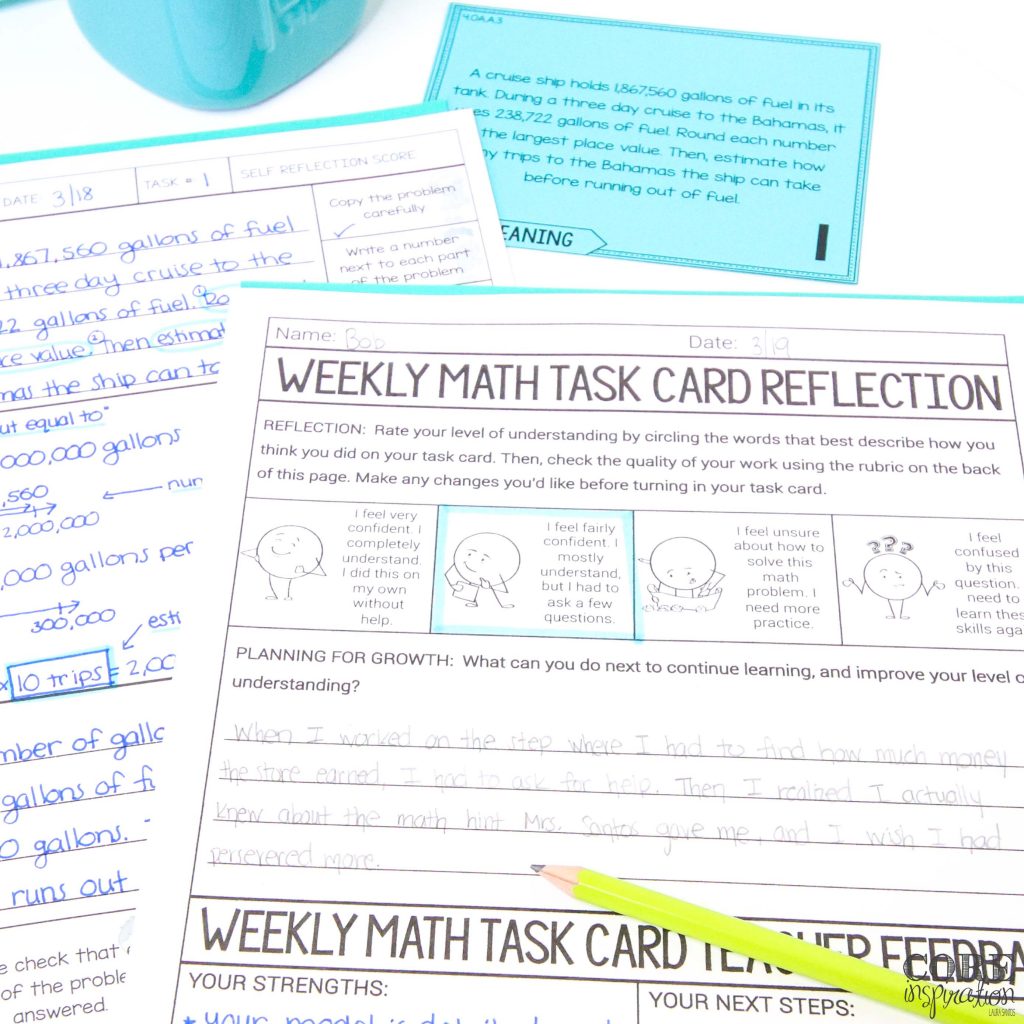
My favorite part about using these tasks is that students become more confident in their ability to create detailed math models and explain their math reasoning independently. We have ALL YEAR to develop these skills and it takes months for some students to get the hang of it, and that’s totally okay!
Q: Are the task card questions from the curriculum you use or did you design them?
I designed them. They are aligned to the Common Core Standards and based on the pacing guides for the top three most commonly-used math curriculums in the Core Inspiration Community. Based on a survey, the most commonly-used math curriculums for readers of this blog include Engage NY, Bridges, and Envision.
Q: What is your process for grading, specifically the self-assessment tasks?
I grade one task per student per week using a rubric and reflection sheet. Students are asked to complete two tasks on average so the second task is simply quick-checked for completion and filed to be sent home in their end-of-unit portfolio. You can read more about my scoring process here.
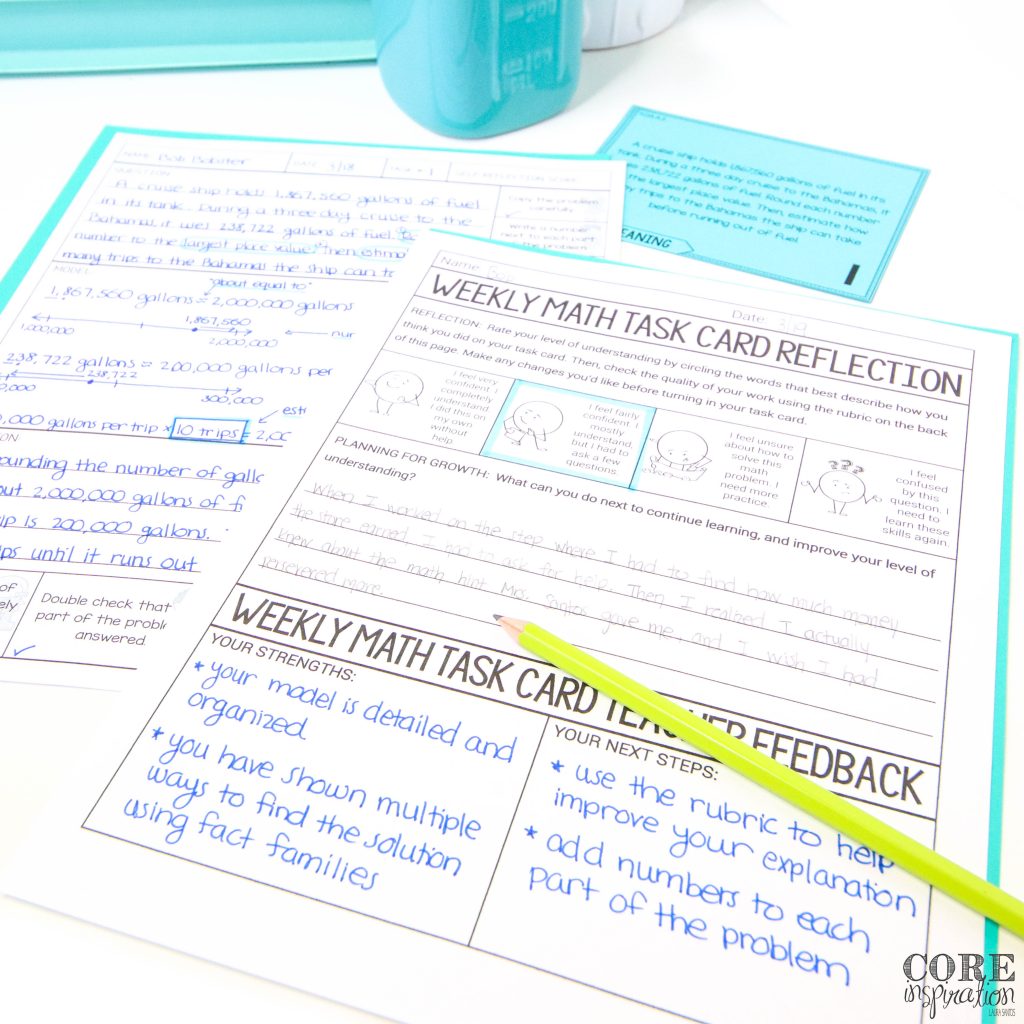
Q: What do you do if students didn’t finish the first page of their At Your Seat work?
If it’s incomplete due to off-task behavior, we use the R.E.S.P.E.C.T classroom management system to reflect.
If it’s incomplete due to inefficient work habits, I observe those inefficiencies for a couple of days and work with the student to give them scaffolds to strengthen those work habits – visuals, checklists, timers, etc.
If it’s incomplete because the student requires a great deal of support in math in general, I modify the number of problems they’re required to complete so they can experience success and then build from there.
Part 4: Technology Rotation Questions
Q: Are there any websites you recommend for the Technology rotation?
The main website I recommend for the technology rotation is Khan Academy. It is easy to assign lessons and practice activities that align with your pacing and it’s free! I also like that it exposes students to state testing-style questions so you don’t need to set aside huge chunks of time for test prep.
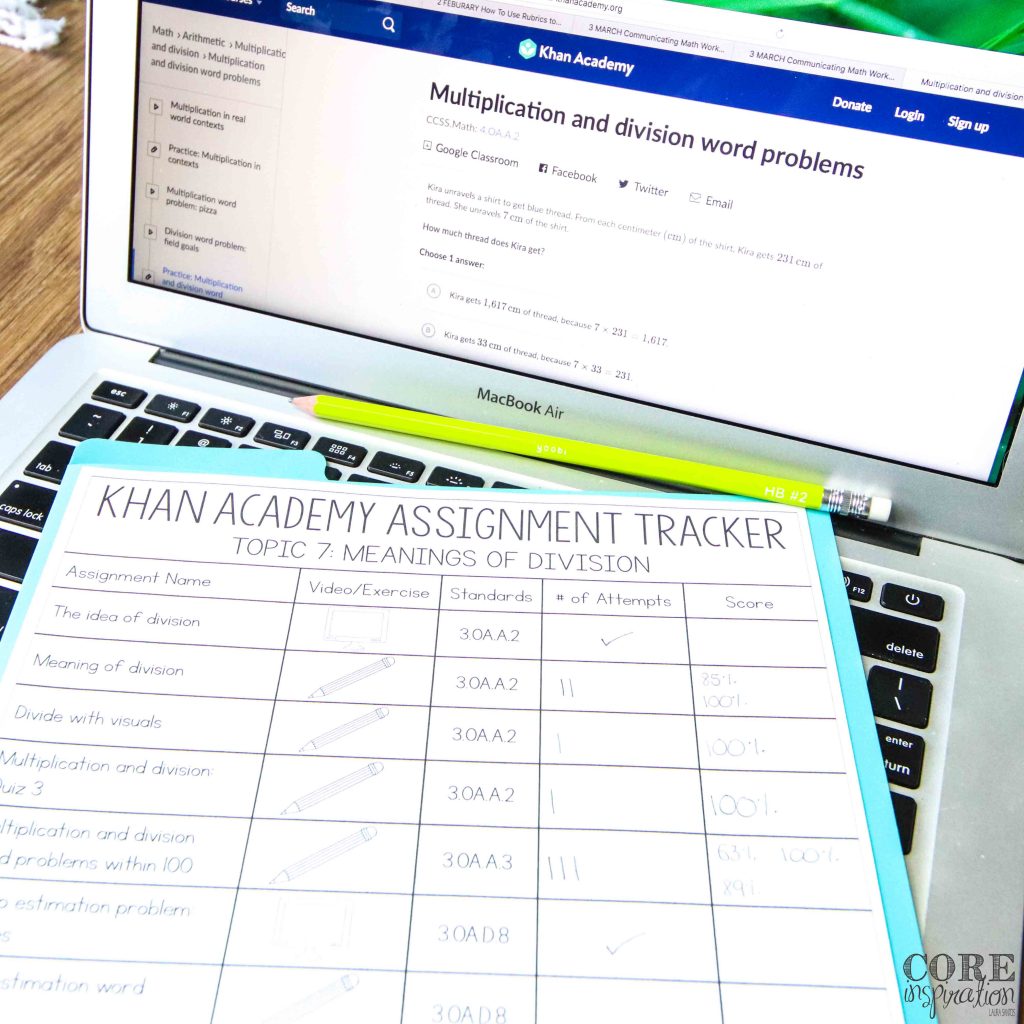
Additional websites used in my third grade class, depending on the unit, include IXL, Xtra Math, and Multiplication.com. In second grade I also used the apps Quick Math, Hungry Fish.
Wrap Up
There you have it! Thank you for sending in these questions about the At Your Seat and Technology Rotations of Math Workshop. If you’re anything like me, reading a list of questions always sparks a few new questions, so feel free to drop those in the comments below. 🙂
Next week (our final week of this series), I’ll be sharing answers to questions about the Hands-On Rotation of Math Workshop.
Interested in the resources featured in this blog post for your own classroom? Click the links below to hop over to my store.
Differentiate Math Word Problem Solving Task Cards – 2nd Grade
Differentiate Math Word Problem Solving Task Cards – 3rd Grade
Differentiate Math Word Problem Solving Task Cards – 4th Grade

